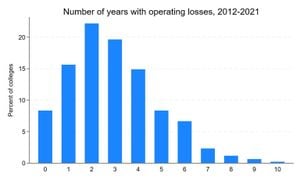Workers at Volkswagen's (VW) German factories are preparing for strikes beginning Monday following the company's plans to cut thousands of jobs. The decision to strike, announced by the IG Metall union, is fueled by growing tensions over VW's proposal to close three plants—a move considered unprecedented within the company’s 87-year history. The automotive giant, which employs around 120,000 workers across Germany, has been facing financial difficulties compounded by high manufacturing costs, challenges associated with the transition to electric vehicles, and stiff competition from rival manufacturers, particularly those based in China.
The strike action starts with "warning strikes," brief walkouts commonly used during negotiations. Although initially seen as minor, IG Metall has warned VW management to reconsider its aggressive cost-cutting strategies or face even more escalated strike actions. The potential for prolonged and widespread strikes looms large, with the union declaring this could become the "toughest collective bargaining battle" Volkswagen has ever faced.
On the economic front, VW reported a staggering 64% drop in its third-quarter profits compared to the prior year, prompting unions to express their disappointment at the company's approach to the negotiations. Progressive proposals from IG Metall aimed at saving approximately 1.5 billion euros ($1.6 billion) by avoiding plant closures were dismissed by VW as insufficient for long-term financial stability.
"It's extremely regrettable," union representatives expressed, lamenting VW’s disregard for constructive feedback. The automotive industry's health, particularly within Germany, is fragile, as indicated by recent downgrades from key players like BMW and Mercedes-Benz alongside parallel job cuts from major suppliers.
The potential closures raise alarms beyond VW; these layoffs are symptomatic of broader issues faced by the German automotive sector. While VW is grappling with underperformance, other manufacturers like Ford are also scaling back operations, with foreseen layoffs totaling around 5,800 positions.
Adding to the tension, the European Union has recently introduced significant tariffs on Chinese-made electric vehicles, which could provoke retaliatory measures from China, potentially exacerbation VW's market challenges. The union's significant leverage during these negotiations is matched only by the unpredictable dynamics of the global automotive market.
On the ground, strikes will commence across nine VW plants, including significant protests at the company's headquarters situated at its largest German facility located in Wolfsburg. Significant solidarity rallies have drawn thousands of workers united against what they shape as the company’s unfair treatment of loyal employees. Speeches from union leaders echoed throughout rallies, holding management accountable as they highlighted the harsh reality many families face under these proposed job cuts.
IG Metall's chairperson, Daniela Cavallo, made it clear workers are not to be scapegoated for Volkswagen's financial struggles. “Workers did not create the problems we face,” she remarked. Expanding on workers' calls for preventing job cuts, some members are lobbying for reducing the workweek hours to 30 without pay reductions. This strategy aims to distribute the available workload across more employees, diminishing reliance on firing workers.
While the domestic challenges are severe, the global outlook for auto manufacturing has also demonstrated turbulence. Reports of slow demand and troubling sales forecasts for major companies indicate the entire sector is undergoing transformation. Car makers race to adapt to new technologies and market needs amid rising costs and shifting consumer preferences.
The strife at Volkswagen mirrors trends seen across automotive plants worldwide, where labor relations are reaching boiling points amid aggressive corporate restructuring. Recently, workers at Stellantis facilities staged their protests as they too faced layoff threats. This wave of industrial action demonstrates increasing solidarity among workers globally, paralleling struggles faced by labor unions seeking to protect jobs and working conditions.
With early elections on the horizon for Germany, the strike holds potential ramifications beyond just VW. Workers are taking bold stances just as economic uncertainties mount, asserting their rights against corporate decisions purported to safeguard profits at the expense of livelihoods. The political and economic landscapes are entwined as labor actions mirror public sentiments surrounding job security and fair wages.
Looking forward, industry watchers will closely monitor how VW navigates this pivotal phase. The outcome of these negotiations could reshape not only the company’s future but also the broader automotive sector’s approach to labor relations.



